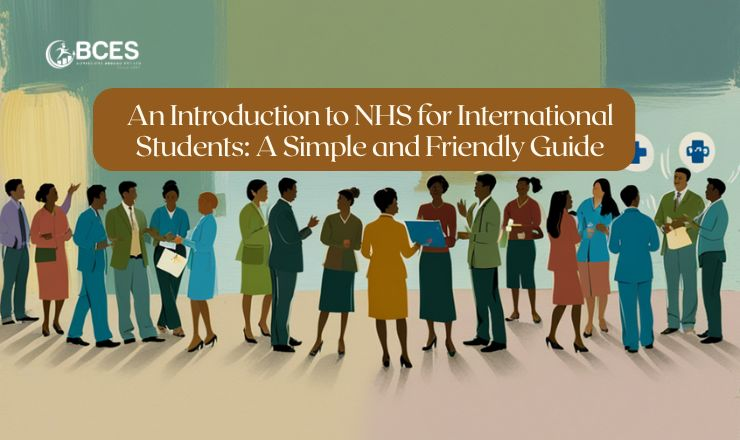An Introduction to NHS for International Students: A Simple and Friendly Guide

12 August 2025
Choosing the United Kingdom as a study destination means participating in a world full of possibilities, with some administrative requirements. A core part of the experience is understanding one’s rights regarding the National Health Service, or the NHS. This discussion seeks to explain how NHS coverage works for international students, detail recent changes, and describe the implications of these changes—all spoken in an organized and easy-to-understand way.
A Welcome to Healthcare in the UK
Once you have a student visa, it is sometimes necessary to pay the Immigration Health Surcharge (IHS). By doing so, you are able to use the National Health Service (NHS), allowing you to take advantage of the healthcare services that are provided to UK residents, including medical consultations, hospitalization, and emergency treatment—usually made available without an initial cost. This is an excellent source of comfort, especially if one is posted away from their native country while enduring the drawbacks of student life.
Recent Developments: Key Facts to Identify
There have also been changes in the IHS and provision of NHS services to students:
Updated IHS Fee Schedule: Since January 2025, IHS fee has been marginally raised. The fee remains in advance for the full validity of the visa, but it is fantastic value for money for the cost of healthcare elsewhere in the globe.
Increased Telehealth Coverage: The National Health Service has widened the coverage of online consultations, allowing patients to take part in remote consultations with general practitioners for minor ailments or follow-up questions—conveniently from their dormitory or home.
Efficient Registration Procedures: Most university health centers nowadays help students register quicker with an NHS GP, typically within the orientation week.
These technologies improve access to health care and decrease barriers when health care is required.
Why This Matters to You
Mental Wellbeing: Freedom from unforeseen medical expenses in the event of illness or injury.
Convenient Accessibility: Chat with your university’s health services or register with a local general practitioner.
Telehealth Accessibility: Get help without ever having to vacate your study area.
Up to Date and Relevant: This guidebook has been informed by the most recent NHS and visa regulations to render it current and effective for the 2025-2026 academic year.
Do you need further support during your NHS experience? BCES Admissions Abroad is here to assist you every step of the way. Please feel free to contact us at +91 9319996330 for personal guidance on UK access to healthcare, the visa application process, or making the transition into your new environment.
Frequently Asked Questions (FAQs)
When your visa is granted and you have paid the IHS, you are eligible for NHS treatment from the first day for as long as your visa lasts.
General practitioner visits, hospital stays, emergency room visits, and mental health treatment—each delivered at no extra charge at the point of service.
Prescriptions are normally a set price per item, although some students will get free ones (e.g., Scotland or Wales). Ask to your local GP.
You can register with a GP anywhere in your visa area.It is good to have one close to campus so that you can go there easily and promptly.
If you need it urgently, attend A&E (accident and emergency). For minor illness, most universities provide initial health cover until you’re fully enrolled.
NHS is comprehensive but others have private additional insurance for quicker specialist or dental care not fully subsidized by NHS. It’s not mandatory.
Your university’s health center or the international student office is an excellent place to go with questions. These departments usually provide in-depth information, thoroughly explaining the steps in the process.